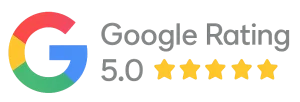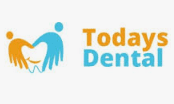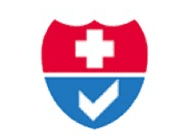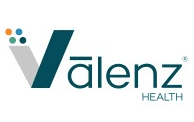In the case of dentists, the process of moving around the insurance payer networks is infamously tricky:
- Access to insurance networks: In order to be a participant of PPO/HMO networks (Delta Dental, Cigna Dental, UnitedHealthcare Dental, and state Medicaid plans), you are supposed to be credentialed.
- Increased acquisition of patients: Being in-network introduces the possibility of obtaining more insured patients.
- Eliminate delays and denials: Incomplete/inaccurate applications to payers: A delay or rejection of applications results in a loss of revenue.
- Administrative load: CAQH, PECOS, licensing, and re-credentialing may crush an in-house staff, particularly in small practices.
Outsourcing credentialing will help you free up your staff to attend to patients, minimize errors, and increase your time to in-network status in general.
What Dental Credentialing Companies Do
A professional credentialing/enrollment company usually deals with:
- CAQH ProView configuration and support: They establish and keep your CAQH profile up-to-date and ensure that all the necessary fields are valid.
- Insurance panel applications: They are used on individual payers (commercial, Medicaid, Medicare, where applicable), and pursue up to attain provider status.
- Primary-source validation (PSV): verification of licensure, education, board certification, work history, malpractice history, and others.
- Contract negotiation: Fee schedule review-where payers permit, they facilitate or negotiate rates of reimbursement.
- Continuous re-credentialing: Track of license, CAQH malpractice renewal dates, etc.
- Embedded credit token staffing or embedded teams: This is where a firm dispatches a set of credentialing professionals to work within your practice to complete a term.
- Credentialing and RCM: Combining credentialing with billing and revenue-cycle support to reconcile between credentialing and cash flow.
Top 10 Credentialing Companies for Dentists
1. Credex Healthcare

What They Do:
Credex Company is a complete provider enrollment and credentialing firm. They deal with CAQH, Medicare PECOS, Medicaid, private-payer enrollment, contract negotiating, and credentialing. They also provide on-demand credentialing staffing (which is credentialing professionals that may integrate into your team on a set term basis).
Strengths for Dentists:
- Scalable: applies to single dentists, multi-site practices, or DSOs.
- Excessive experience in credentialing: numerous applications.
- Full-time credentialing experts + account managers.
- On-demand monitoring of applications.
- Credential warnings (license, malpractice, CAQH).
- Alternative: the staffing solution is applicable to practices that foresee the recruitment of additional providers.
Things to Confirm:
- Request Christy to provide examples of dental-specific payer panel enrollments (Delta Dental, Medicaid dental, etc.).
- Establish whether they support negotiation of dental payers’ fee-scheduling.
- Elaborate on the price (application, provider, or package) of dental credentialing.
- Know how embedded staff solutions operate: cost, term, and dental experience of such staff.
2. Capline Dental Services
What They Do:
Capline has specialized in credentialing and dental billing. Their credentialing team deals with CAQH, payer enrollment, re-credentialing, and status reporting. They have also been offering RCM (revenue cycle management), claim follow-up, and patient statements.
Strengths for Dentists:
- Significant knowledge in the realm of deep dental payers: employees know the ins and outs of dental panels.
- Frequent status reporting: they update the practice in every bi-month.
- Innovative billing + credentialing: streamlines the operation of vendors.
- None of them has a long-term lock-in: their model is scalable to small or large dental offices.
Things to Confirm:
- Which payers do they enjoy close relations with (e.g., Delta, Medicaid, services in a particular region).
- The way they bargain or advocate for fee plans among the dental payers.
- Re-credentialing procedures and expenses.
3. Today’s Dental Partners
What They Do:
They provide cheap, open credentialing services as well as general back-office support (billing, analytics, recruiting). Their pricing on credentialing is publicly disaggregated, and they provide a portal to monitor the progress of the applications and document expires.
Strengths for Dentists:
- Extremely transparent and inexpensive prices: suitable for individual practitioners or new dentists.
- Application real-time tracking: you never know where you are.
- Expiry notifications (licenses, CAQH, credentials) to avoid expired credentialing.
- At the maintenance level, CAQH and PECOS.
Things to Confirm:
- Whether they deal with the complicated payer situations (specialist dentists, Medicaid).
- The strength of their fee-schedule negotiation, particularly in relation to dental-specific payers.
- They have a high success rate amongst large dental payers.
4. DentDesk Billing Solutions
What They Do:
DentDesk is credentialing with full billing and patient-facing. They check on insurance, give AR follow-up up and even practice answering and scheduling.
Strengths for Dentists:
- Credentialing and billing under one roof.
- Intensive knowledge of dental billing; they know dental claims, denials, and payer regulations.
- Post-submission tracking: they make follow-ups with payers until enrollments are done.
- Other front-office assistance: answering services, appointments, verifications — handy with lean offices.
Things to Confirm:
- The duration of their monitoring, after making an application and re-credentialing.
- Credentialing prices in bundled vs standalone cases.
- Dental specialty credentialing (orthodontics, etc) experience.
5. Medversant
What They Do:
Medversant is a CVO, proprietor of the platform ProviderIQ. They deal with application processing, PS V (primary-source verification), continuous monitoring, and data management.
Strengths for Dentists:
- NCQA-approved and URAC-certified CVO.
- Automated data entry ProviderIQ can pre-populate CAQH.
- Constant checks on license (DEA, board, sanctions).
- Strict compliance with minimizing payer audit or reimbursement.
Things to Confirm:
- Augmented by that, Medversant has the ability to support not only medical but also dental providers and dental-specific panels.
- The monitoring service with respect to dental re-credentialing schedules.
- CVO-only (credentialing) and full enrollment cost structure.
6. Vālenz Health
What They Do:
Vālenz Health has a credentialing verification solution known as VPoint, a credentialing verification solution which manages end-to-end provider credentialing, primary-source verification, re-credentialing, and continuous monitoring.
Strengths for Dentists:
- Certified CVO: URAC-certified and NCQA-certified.
- Quick processing: They say that they can save a lot of time in credentialing (they document extremes).
- Auto notification of expired credentials, sanctions, or licenses.
- Easy data storage and reporting: look in and use reports, credentialing status, and source documents.
- Scalable: indicative of a medium to large practice or DSO.
Things to Confirm:
- You can inquire directly how they are helping dentists (compared to medical providers): do you have previous dental customers?
- Regardless of whether they assist in payer enrollment (or just verification), V is more verification/CVO oriented.
- Their pricing structure: flat per-provider, per-credential, or subscription.
7. 5ACVO (Fifth Avenue Credentialing Network).
What They Do:
5ACVO (Fifth Avenue Credentialing Network) has provider enrollment and credentialing services, and a single application that relates to 20+ health plans. They are accredited by NCQA and deal with the entire lifecycle: credentialing, contracting, and re-credentialing.
Strengths for Dentists:
- Single enrolment: a single application can decrease duplications and accelerate the process of payer enrolment.
- Expert in several insurer networks: ideal in practices that were broadening the mix of payment.
- Scalable model: is applicable to small practices or big provider networks.
- Strong credentialing process: The 5ACVO has primary-source verification, demographic updates, and revalidation.
Things to Confirm:
- Affirm whether 5ACVO possesses knowledge in dental-payer ( Delta Dental, Medicaid dental).
- Inquire concerning particular dental enrollment track record, particularly with payers in your locality.
- Know cost framework: Do they bill on a per-enrollment, according to the provider, or based on yearly membership?
8. Symplr
What They Do:
Symplr offers credentialing services at an enterprise level, like performing primary source verification, payer enrollment, re-credentialing, licensure management, privileging, and others. Their CVO is NCQA-accredited.
Strengths for Dentists:
- Extremely strong compliance infrastructure: Symplr is a large practice, health system, or fast-growing DSO-friendly.
- Credentialing software services +: they blend hardcore technology with on-the-job personnel.
- Active supervision: license, sanction, and document expiry control.
- Flexibility: are able to support large and small loads of providers, and hence are useful in scaling dental operations.
Things to Confirm:
- The level of their experience with dental-specific payer networks (do they have dental credentialing cases)?
- How small dental practices rate their level of service (cost, minimums).
- Credentialing + re-credentialing turnaround time, cost.
9. nCred / National Credentialing Solutions
What They Do:
nCred specializes in provider enrollment and credentialing. A list of the best credentialing services provided by MBW RCM offers nCred to be laser-focused on credentialing and provider enrollment. MBW RCM
Strengths for Dentists:
- Specialists: This is because they are not engaged in anything other than credentialing, and, therefore, their team probably possesses intimate experience.
- Efficiency: Due to their laser focus, they might have an efficient application processing.
- Clean process: Reduced overlapping in billing or other services, which may cause confusion.
Things to Confirm:
- Request them to give peer references, specifically with dental professionals (payer networks).
- Fee structure: are they based on a flat rate per enrollment or on a per-payer basis?
- What of re-credentialing, maintenance of CAQH, and revalidation of the payer?
10. Physician Credentialing Company
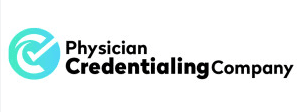
What They Do:
Some tasks performed in this company include CAQH enrollment/maintenance, PECOS (when required), payer contracting, hospital privileges, and primary-source verification. Physician Credentialing Company. They state good on-time submission and proactive payer follow-ups.
Strengths for Dentists:
- Best practice: They will take steps to collect credentials systematically, work with CAQH, and process payer applications. Physician Credentialing Company.
- Account management: they make weekly follow-ups and proactively escalate issues. Physician Credentialing Company.
- Widespread experience with payers: They deal with commercial, Medicare, and Medicaid networks. Physician Credentialing Company.
- Privileging of support: In case a dentist requires hospital admitting privileges (surgical dentists), these can also be obtained.
Things to Confirm:
- Check their familiarity with dental providers (not only MDs/physicians).
- Do they favor specialty dental entry-level (oral surgery, periodontics) and dental-specific payer arrangements?
- AFVE and re-credentialing, along with CAQH administration expenses.
Why Outsourcing Credentialing Is So Valuable for Dentists
Time savings: The internal staff will not need to spend hours on payer applications and follow-up.
Lessened errors: Vendors involved in credentialing are seasoned; they identify any missing records, wrong licensure data, or CAQH discrepancies.
Quick access to networks: A quick process of credentialing may ensure that you can quickly begin to see insured patients.
Continued support: Credentialing is not limited to joining a payer; renewal and monitoring remain of importance.
Growth as you require it: Credentialing firm will grow with your dental practice (particularly in the event they include embedded staff or RCM).
Final Thoughts
The selection of the most appropriate credentialing companies among the dentists is a strategic choice. It is not simply a matter of enrolling, but of compliance, having provider status in the long term, and being able to integrate with your financial processes. The 10-second line of companies listed above provides you with a powerful cross-section as to what is available:
- Credex Healthcare is transitioning to a full-service, high volume scalable model.
- Dental specialist: Capline Dental Services and Today’s Dental Partners.
- One-stop billing + credentialing.
- Medversant, Valenz, and Symplr are used in an enterprise or complicated compliance requirement.
- 5ACVO, nCred, Specialty enrollment and verification company with Physician Credentialing Companies.
FAQs
1. What is the duration of dental credentialing?
The dental credentialing process normally requires 45-120 days, and this is based on the insurance company, state, and the completeness of your application.
Most commercial PPOs, such as Delta Dental or Cigna, can take 60-90 days, whereas Medicaid dental plans may require more time. The credentialing companies ensures delays are minimized through the submission of complete applications and consistent follow-ups.
2. Is the outsourcing of credentialing to a new dental practice a good idea?
Yes, it’s usually recommended. New practices should become a part of payer panels within the shortest time possible in order to start accepting insured patients. Outsourcing prevents errors, wastes time among the staff, and quickens the approval process.
3. Are credentialing companies dealing with re-credentialing?
Yes. Re-credentialing is based on the payer and is commonly done after 2-3 years.
Skilled suppliers keep track of expiry dates and thorough recredentialing before the time runs out to ensure that you are in the network.
4. What are the prices of dental credentialing services?
Prices depend on the provider and services; still, average expenses consist of:
- $200–$500 per payer application
- $300–$700 for CAQH setup
- $150–$300 for re-credentialing
- DSOs or Multi-location practices on a monthly subscription basis.
Among the factors are specialty, state, and payer mix.
5. Do you assist in checking credentialing status or tracing up insurance companies?
Yes. A credible credentialing firm makes constant contact with the insurance companies, keeps track of the application process, handles your request to get more documents, and keeps you informed until your approval.




